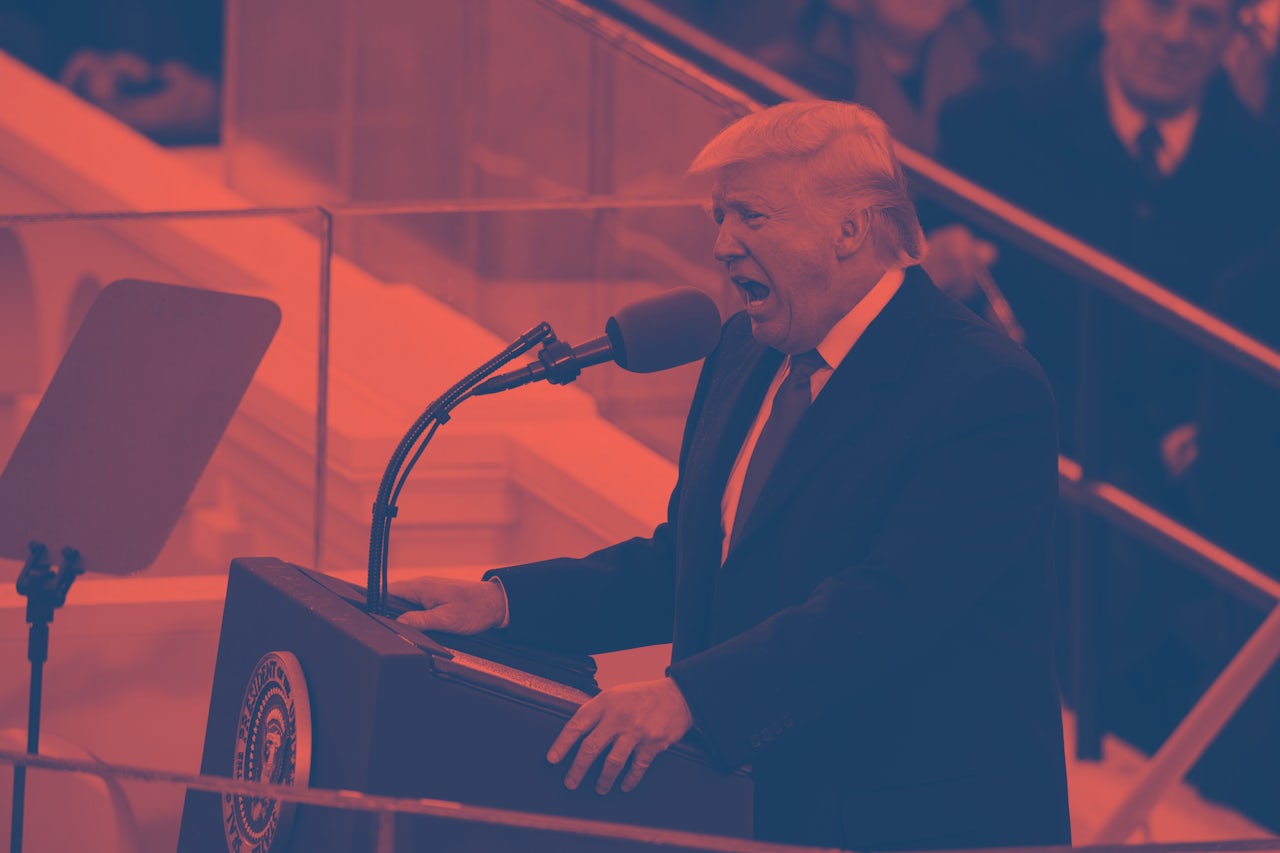The Trump administration has been described as the leakiest administration in history. Trump has publicly lamented the “illegal leaks” that have plagued his administration, and Attorney General Jeff Sessions has said that leak investigations have tripled since Obama.
That’s why Mark Zaid, a D.C. lawyer who often represents government employees, has created a new law firm called Whistleblower Aid. The firm, which is registered as a nonprofit, is asking for donations so it can represent government employees and contractors who want to blow the whistle for free.
The effort isn’t a response to the Trump administration, but more of a product of it, Zaid told The Outline in an interview, because of the unusually high number of leaks. “There's something about this administration — and it's not about this Republican administration, it's about this Trump administration — that has created an intensity that didn't exist before,” Zaid said.
The idea for the firm came from Zaid’s cofounder John Tye, a former State Department employee who in 2014 blew the whistle on a loophole being used by the National Security Agency to spy on Americans. Tye didn’t contact a reporter, but instead hired Zaid to assist in in reporting the loophole within the government. Eventually, Tye was able to publish an article in The Washington Post on the loophole, and testified in front of Congress.
Whistleblowing tends to be thankless, even when the revelations are in the public interest. Edward Snowden is in tenuous exile in Russia; Chelsea Manning spent almost seven years in prison, and she was lucky. Even going through official channels doesn’t always prevent backlash. Thomas Drake, a former senior executive at the National Security Agency, tried to blow the whistle through official channels, but was later arrested and prosecuted. The charges were eventually dropped. Zaid’s project is using SecureDrop, a tool that allows people to leak documents or communicate privately using multiple layers of encryption, so that those who wish to blow the whistle on potentially top secret government activities can do so securely.
We talked to the founder of Whistleblower Aid on our daily podcast, The Outline World Dispatch. Subscribe on Apple Podcasts or wherever you listen.
“Whistleblowers should not have to sacrifice their careers because of concerns or actual retaliation,” Zaid said. “We're gonna have to take people through the system, as far as we can, and hopefully give them the protection they need and at the same time be able to bring forth the information they want the world to see, or at least the information they want the government to see.” For 20 years, Zaid has worked on cases involving classified material and has represented employees of U.S. intelligence agencies. That’s why he has a Top Secret security clearance. “I represent a lot of people who are covert undercover secret intelligence officers. I'm somewhat unique in what my law practice is,” Zaid said.
Zaid has been critical of famous whistleblowers like Manning and Snowden for not going through official government channels. That’s the root of some of the conspiratorial criticism launched at Zaid by Julian Assange after he announced his project, accusing Zaid’s project of being a honeypot for the government. “What I’ve been saying back to Wikileaks is, ‘how do you not support what we are trying to do?’” Zaid said. “We are trying to hold the U.S. government accountable and provide free legal services to whistleblowers so they don't ruin their careers in the process or be prosecuted.”
“If you go around the system, all it does is give power to the government to say ‘well we have a system, but you didn't even bother to try.’”
Assange isn’t Zaid’s only critic. “This is the big fight I get into with people all the time about going through the system,” Zaid said. “I never say the system works well. But it is a system, and sometimes it does work. If you go around the system, all it does is give power to the government to say 'well we have a system, but you didn't even bother to try.'”
Navigating some of the internal infrastructure of an agency’s whistleblowing process can be complex, perilous, and frustrating. Those who seek to blow the whistle can often have strong moral convictions, so Zaid says part of his job is removing the sometimes intense emotion from the process so that government employees have the best chance possible at enacting the change they want to see.
“Someone in the general counsel's office in an [intelligence] agency is gonna take me a lot more seriously, and with caution, than they would their own employee,” Zaid said. “Most whistleblowers don't start out as whistleblowers. All they're doing is reporting to a supervisor or the Inspector General's office or a colleague about something they saw at work, and then all of sudden they find themselves as a subject of retaliation from someone who's a part of the wrongdoing inside their agency, or they get extremely frustrated that they don’t see anything being done or change being affected by what they complained about.”
Though Zaid will admit that going through these internal processes can often have “mixed” results. “It's a mixed bag, for sure. There's no doubt that some people have come out of it incredibly disappointed,” Zaid said. “Some of them have been a success story, some of them have been an absolute disaster. In some cases I just want to bang my head against the wall at how obstinate and non receptive the government was.”
